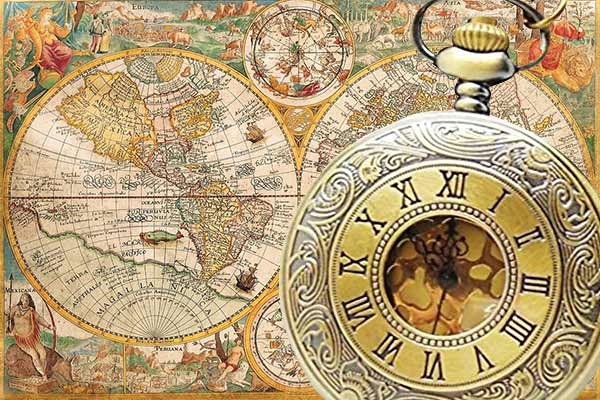1827 – New Orleanians take to the streets for first Mardi Gras
On this day in 1827, a group of masked and costumed students dance through the streets of New Orleans, Louisiana, marking the beginning of the city’s famous Mardi Gras celebrations.
The celebration of Carnival–or the weeks between Twelfth Night on January 6 and Ash Wednesday, the beginning of the Christian period of Lent–spread from Rome across Europe and later to the Americas. Nowhere in the United States is Carnival celebrated as grandly as in New Orleans, famous for its over-the-top parades and parties for Mardi Gras (or Fat Tuesday), the last day of the Carnival season.
1922 – Supreme Court defends women’s voting rights
In Washington, D.C., the 19th Amendment to the U.S. Constitution, providing for female suffrage, is unanimously declared constitutional by the eight members of the U.S. Supreme Court. The 19th Amendment, which stated that “the right of citizens of the United States to vote shall not be denied or abridged by the United States or any State on account of sex,” was the product of over seven decades of meetings, petitions, and protests by women suffragists and their supporters.
In 1916, the Democratic and Republican parties endorsed female enfranchisement, and on June 4, 1919, the 19th Amendment was passed by Congress and sent to the states for ratification. On August 18, 1920, Tennessee became the 36th state to ratify the amendment, achieving the required three-fourths majority of state ratification, and on August 26 the 19th Amendment officially took effect.
1936 – Shirley Temple receives $50,000 per film
On this day in 1936, Shirley Temple receives a new contract from 20th Century Fox that will pay the seven-year-old star $50,000 per film.
Temple was born in 1928 in Santa Monica, California, and started appearing in a series of short films spoofing current movies, called Baby Burlesks, at the age of four. At six, she attracted attention with her complex song-and-dance number “Baby Take a Bow,” performed with James Dunn, in the 1934 movie Stand Up and Cheer. Based on the film’s success, 20th Century Fox signed little Shirley to a seven-year contract. She would appear in a string of films that year and the next, including Little Miss Marker, Change of Heart, Bright Eyes (which featured one of her most famous songs, the bouncy tune “On the Good Ship Lollipop”), and Curly Top. At the depths of the Great Depression, Temple’s films provided a cheery alternate universe for audiences suffering the effects of widespread unemployment and general economic hardship.
1980 – “I Will Survive” wins the first—and last—Grammy ever awarded for Best Disco Recording
After watching it utterly dominate the musical landscape of the late 1970s, the National Academy of Recording Arts and Sciences gave disco their stamp of approval, deciding to give a Grammy award for Best Disco Recording, just as the musical style was preparing to die. The first and final Grammy for Best Disco Recording was awarded on this day in 1980, to Gloria Gaynor’s “I Will Survive.”
The choice of “I Will Survive” as the winner that night was unassailable, even given the competition. Also nominated in the Best Disco Recording category were: Earth, Wind & Fire for “Boogie Wonderland;” Michael Jackson for “Don’t Stop Till You Get Enough;” Rod Stewart for “Do Ya Think I’m Sexy?”; and Donna Summer for “Bad Girls.” If there was anything surprising about the award, it was that it was being given at all, considering the anti-disco backlash that was already well underway.
1992 Tiger Woods,16, becomes youngest PGA golfer in 35 years
Tiger Woods, full name (Eldrick Woods) born December 30, 1975 in Cypress, California, was a golf child prodigy before turning pro in 1996. He won his 1st major in 1997 and became the No.1 ranked player shortly after. He dominated golf throughout the 2000s and is one of only 4 players to win the Career Grand Slam. He has the lowest career scoring average and the most career earnings of any player.









